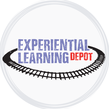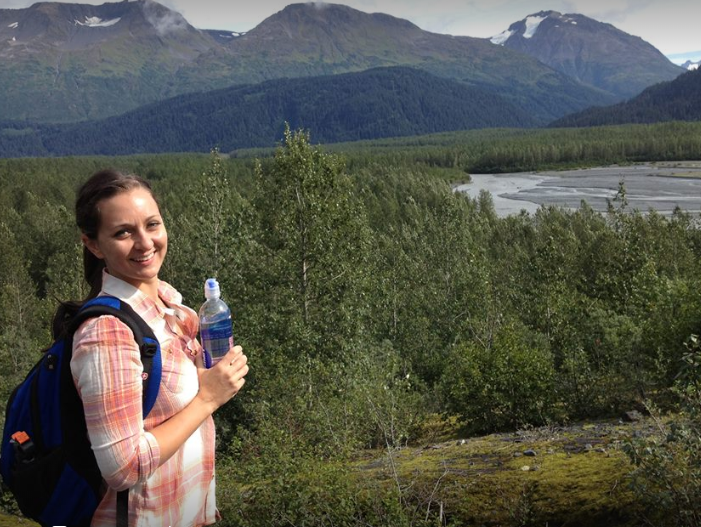|
Experiential learning resources for the innovative educator
The benefits of educational through travel are invaluable. I have seen the impact that travel has on students from school travel groups, traveling homeschool families, and youth groups. I have experienced this impact personally and have watched how travel has affected my own children.
I was a field ecologist for many years before I became a teacher. I traveled the world working on various wildlife studies.
I have always been a homebody, so traveling didn't come naturally to me, but I knew that if I was going to have a chance at a career in ecology I would have to leave home. I felt uncomfortable and was homesick more often than I felt in my element. But it was because of being out of my element that I discovered who I was, what I valued, what I wanted in life and how I would get there. I developed career skills from firsthand experiences, built relationships with people that are now like family, and experienced ecology and conservation concepts that I had only read about in textbooks up to that point. Traveling changed me in a way that no other building-bound experiences could have. Education through travel is literally life-changing.
I knew when I became a teacher that I wanted to teach somewhere that had an educational travel program because I knew the impact traveling could have, especially on a young person.
I applied at a community school for middle and high school students that technically had a travel program, but it needed a makeover. I made the pitch in my interview with the director of the school to revitalize the school's education through travel program, and I spent the next ten years of my teaching career trying to (and successfully, I think) live up to that promise. I have dedicated so much of my teaching career to educational travel because I have observed the benefits and impact it can have on someone over and over again, student after student. Teachers, homeschoolers, youth group leaders: If you are interested in incorporating education through travel into your curriculum, this post is a great place to start. 7 Benefits of Education Through Travel
1. Increase Cultural and Global Awareness:
Children, particularly teenagers, tend to be self-involved, let's be honest. They're not to blame. It's in their nature.
Removing students from their "bubbles" and shaking up their lives a bit by pushing them beyond their comfort zones can have drastic and beautiful results. It is difficult for students to understand others and the world around them when they are not directly impacted. The teenage brain needs to connect concepts with real-life experiences. When students view the world from a different angle, their worldview is altered. Education through travel allows them to see the world beyond themselves, which has benefits in its own right, such as building empathy
2. Gaining Content Knowledge:
Content knowledge is part of the "education" in education through travel.
When I travel with students, we travel with purpose. Because I am a biology teacher, my purpose is usually environmental in nature, but traveling naturally integrates subjects, especially when rooted in self-directed project-based learning. Students that travel with me on school trips go through seminars and complete several student-directed PBL projects pertinent to the designated "purpose" prior to the trip. They also work on other projects while ON the trip - group and independent - relevant to the trip purpose. Upon return, each student reflects and shares their work with a public audience. The amount of content absorbed is astounding, and it's all because the concepts are right in front of them. They are involved. Students are immersed in them. They are actively learning through experience.
3. Develop a Healthy Self-Concept:
I know the statement that education through travel leads to a healthier self-concept is cliche, but it's true, and anyone who travels knows it to be true.
The phrase "I'm traveling to find myself" is critical when it comes to kids. Teenagers deal with a lot. Getting through the teenage years in one piece requires a strong, healthy self-concept that can be acquired with traveling. By getting away from the daily pressures of life, students can ask themselves who they really are. This I've seen time and time again. A student travels on a school trip and comes back a changed person with a renewed spirit and ultimate confidence. They had the unique opportunity to learn about themselves, discover their skills, dreams, talents, and hopes through a fresh lens. A true education through travel right there.
4. Develop Critical 21st Century Skills:
Content is important, but at the rate society is evolving, having the skills to navigate those changes is essential.
Careers will look very different 20 years from now. Technology is changing everything. Traveling puts students in a position to work at those life skills. If you can, allow students to be a part of the trip planning process. They practice organization, locating credible resources, goal-setting, and managing their time. While on trips students encounter situations where they need to problem-solve, think critically, work as a team and get creative. Adding project-based learning experiences to the mix adds even more skill-building opportunities such as communication and collaboration.
5. Build Lifelong Friendships:
The feeling of belonging is a basic need. It is something that many people spend a lifetime trying to attain with little luck.
Feelings of loneliness are rampant in young people as well as adults. Everyone is a bit vulnerable when they are traveling. They are away from their homes, their friends, family and comfort zones. With group travel, everyone is in the same boat. My students cast aside their differences on trips and create bonds that last a lifetime because they are experiencing something new and profound together. With education through travel, only those experiencing the same trip can understand what the other is feeling in that moment.
6. The Ability to Envision a Bright Future:
The ability to envision a future in a positive way is something that educators that work with high-risk populations will see in their students as an outcome of travel.
Having an education through travel program at a school with underrepresented students is powerful because students living in poverty do not have easy access to travel experiences. Travel is simply not an option. Many of my students don't look further than the moment. They don't consider their future careers. Many of them don't expect to finish high school. When traveling, they gain a new perspective on the future. For the first time they can look ahead and envision something positive. They may not know what yet, but for the first time they are open to the possibilities.
7. Open Doors of Opportunity:
Kids, or people in general, need avenues for learning opportunities and life experiences. The exposure needs to be there.
In other words, sitting at a desk in a classroom taking notes or listening to a lecture doesn't set the stage for deep, meaningful, or life-altering learning experiences. The doors are closed, figuratively and literally, for potential. I took students to work on a ranch for one of my summer high school travel programs. The ranchers were so impressed by one of my students, that this student was invited back the following summer to intern, and the summer after that, and after that. This student ended up working in agriculture, and as far as I am aware, still does. Had this student not come on the trip he wouldn't have met the ranchers and scored the internships. That wouldn't have been because he wasn't good enough. It would have been because the opportunity wouldn't have presented itself any other way. Education through travel opens doors that sitting in a classroom just doesn't.
Well, now what?
Now that you know the WHY, the benefits of education through travel, what do you do with that?
Homeschools: Homeschoolers, if you're short on time, finances, or travel resources, consider starting small and encouraging your children to play a role. You don't need to sell your home, pack up your kids, and travel the world (as Instagram would you have you think). Even an annual weekend camping trip or a quick road trip away from the monotony of everyday life gets children excited. You can also ask that your children help plan the travel experience and that they fundraise for trips. Teachers: Teachers, especially those working in a traditional school environment, you have a challenge ahead of you. If travel is something that is important to you and you want that for your students, consider meeting with other educators at your school, parents of students, community members, and more, to put together a proposal for a school travel program. By creating a committee you'll have more ideas and a bigger voice. This is especially true if parents are involved. Principals/Directors: Principals and directors, if you're interested but unsure, try connecting with schools that DO have an education through travel program and pick their brains about how they make it work and the impact it has had on learning and school culture.
I hope this blog post on the benefits of education and travel has been useful. If you are a teacher that travels with students, I'd love you to share your stories and travel tips.
Let's work together!
Click the links below to learn more: Join our experiential learning Facebook group! Did you know there is an experiential learning Facebook group? Check that out - Experiential Learning Community for K12 Teachers - and join in the discussion about experiential learning ideas! Find us on social media! Follow Experiential Learning Depot on Pinterest, Facebook, Youtube, and Instagram for more on experiential education, and check out my shop for experiential learning resources. Observe. Question. Explore. Share.
5 Comments
Sara (Experiential Learning Depot)
12/11/2020 07:07:42 am
I’m so glad! Thanks for reading!
Reply
9/26/2021 08:24:33 pm
The site was absolutely fantastic! Lots of great information and inspiration, both of which we all need. Thank you
Reply
Experiential Learning Depot
9/27/2021 06:49:12 am
You’re welcome! I’m glad you were inspired!
Reply
I couldn't agree more with you on the benefits of educational travel. Your personal experience as a field ecologist and teacher reinforces the idea that traveling can be a transformative experience. Your dedication to revitalizing the educational travel program in your school and helping other educators incorporate it into their curriculum is truly inspiring.
Reply
Your comment will be posted after it is approved.
Leave a Reply. |
Blog IntentTo provide innovative educational resources for educators, parents, and students, that go beyond lecture and worksheets. AuthorSara Segar, experiential life-science educator and advisor, curriculum writer, and mother of two. Categories
All
|














 RSS Feed
RSS Feed